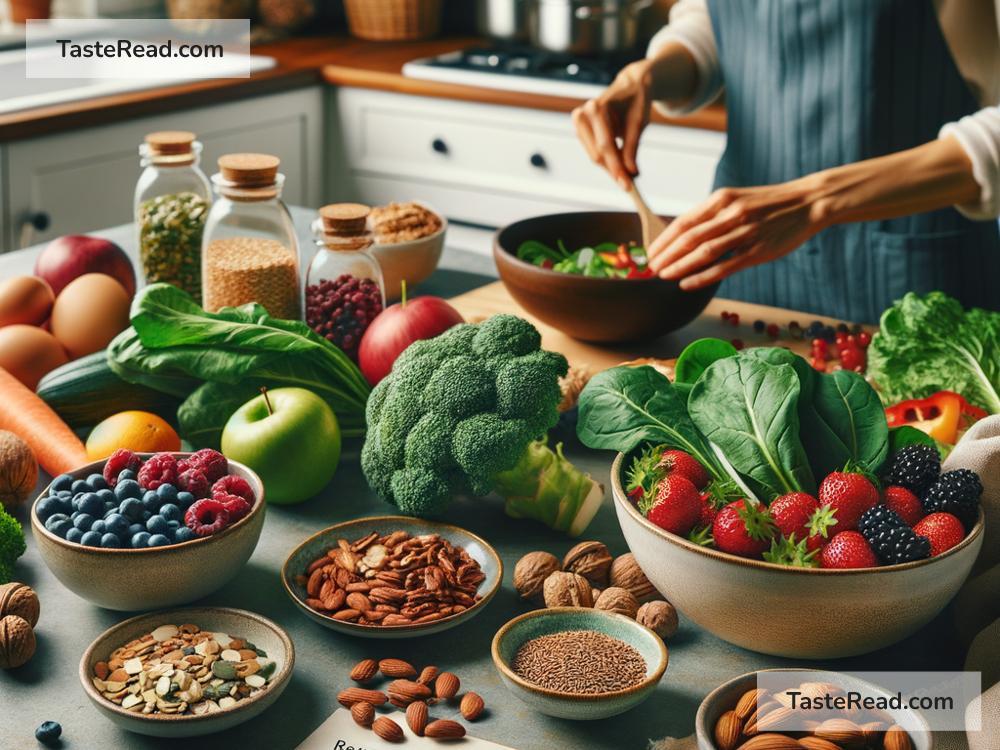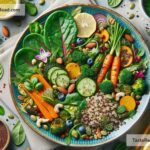How to Optimize Nutritional Intake for Aging
As we grow older, the way our bodies process food and nutrients changes. It becomes more important than ever to eat the right kinds of food to stay healthy and strong. Eating well can help maintain energy levels, support a healthy immune system, and even prevent or manage health conditions like heart disease, diabetes, and osteoporosis. In this blog post, we’ll take a closer look at how you can optimize your nutritional intake to feel your best as you age.
Why Nutrition Matters More As We Age
Aging comes with natural changes in the body. Over time:
– Metabolism slows down, meaning you need fewer calories to maintain your weight.
– Nutrient absorption can decline, making it harder for your body to get the vitamins and minerals it needs.
– Appetite and physical activity might decrease, which can lead to eating less.
Eating a nutrient-packed diet is essential to make sure your body is getting everything it needs, even if you’re eating less food overall. By focusing on high-quality, nutrient-rich foods, you can promote healthy aging while reducing the risk of chronic illnesses.
Nutritional Needs for Older Adults
Here are specific nutrients that become especially important as we age and tips on how to get enough of them.
Protein for Muscle Health
As we get older, muscle loss (called sarcopenia) can become a concern. Protein is essential for maintaining muscle strength. Aim to include lean protein in every meal. Some good choices include:
– Chicken, turkey, or fish
– Eggs
– Beans, lentils, or tofu
– Greek yogurt
– Nuts and seeds
Snack on protein-rich foods like nut butter or cheese, and consider including plant-based proteins for variety.
Calcium & Vitamin D for Bone Strength
Our bones can lose density over time, which increases the risk of fractures and osteoporosis. Calcium and vitamin D are essential for keeping bones strong. You can find these nutrients in:
– Dairy products like milk, cheese, and yogurt
– Leafy green vegetables like kale and spinach
– Fortified foods, such as cereals, orange juice, and plant-based milks
– Fatty fish like salmon and tuna
– Sunlight exposure, which helps your body make vitamin D
If you’re not getting enough through foods, talk to your doctor about possible supplements.
Fiber for Digestion
Digestive issues like constipation become more common in older adults. Fiber helps keep your digestive system running smoothly and can also lower cholesterol and reduce the risk of heart disease. Good sources of fiber include:
– Whole grains like oats, quinoa, and brown rice
– Fruits like apples, pears, and berries
– Vegetables like carrots, broccoli, and sweet potatoes
– Legumes like beans, chickpeas, and lentils
Drink plenty of water along with fiber-rich foods to help your digestive system function properly.
B Vitamins for Energy & Brain Health
Certain B vitamins, such as B12, help keep your brain and nerves functioning properly. As you age, it can become harder for your body to absorb B12 from food. Good sources include:
– Meat, fish, and eggs
– Dairy products
– Fortified cereals and plant-based milks
If you suspect a deficiency, your doctor might recommend a B12 supplement.
Healthy Fats for Heart Health
Not all fats are bad! Healthy fats, like omega-3 fatty acids, can help reduce inflammation and maintain a healthy heart and brain. Include foods like:
– Fatty fish (salmon, mackerel, sardines)
– Nuts, seeds, and avocado
– Olive oil
Try to limit saturated fats found in fried foods and baked goods and avoid trans fats altogether.
Hydration for Overall Health
Older adults are more prone to dehydration because the body’s thirst signals aren’t as strong. Drinking enough water is vital for maintaining energy and supporting digestion, circulation, and temperature regulation. Aim for 8 glasses of water a day, and eat water-rich foods like cucumbers, watermelon, and soups.
Practical Tips for Eating Well As You Age
Optimizing your nutrition doesn’t have to be complicated or expensive. Here are some simple tips to make eating healthy easier:
- Plan your meals: Plan balanced meals ahead of time that include lean protein, whole grains, fruits, and vegetables.
- Eat smaller portions, more often: Eating smaller meals throughout the day might be easier on your stomach and help boost energy.
- Use seasonings wisely: If your sense of taste has faded, use herbs and spices to enhance flavors instead of adding extra salt.
- Cook at home: Homemade meals tend to be healthier than processed or fast foods. Plus, you can control ingredients and avoid excess sugar, salt, and bad fats.
- Snack smart: Opt for nutrient-rich snacks like nuts, yogurt, or fresh fruit instead of chips or candy.
- Check food labels: Look for products lower in added sugars, sodium, and saturated fats.
- Stay active: Pair good nutrition with regular exercise to maintain muscle, bone health, and overall vitality.
Consult a Professional
Every person’s nutritional needs are unique, especially as we age. Consider consulting a doctor or dietitian to create a personalized nutrition plan that accounts for your health conditions, medication, and lifestyle. They can also guide you in deciding whether you need supplements to fill any nutritional gaps.
Wrapping Up
Eating well as we age is one of the best ways to maintain health, energy, and independence. By focusing on nutrient-rich foods and staying hydrated, you can help your body feel its best. Small, consistent changes in your diet can make a big difference in how you feel and function over time. Age is just a number—let a healthy diet empower you to enjoy life to the fullest!
Stay healthy and happy! If you found this article helpful, share it with loved ones who are embracing healthy aging too.


